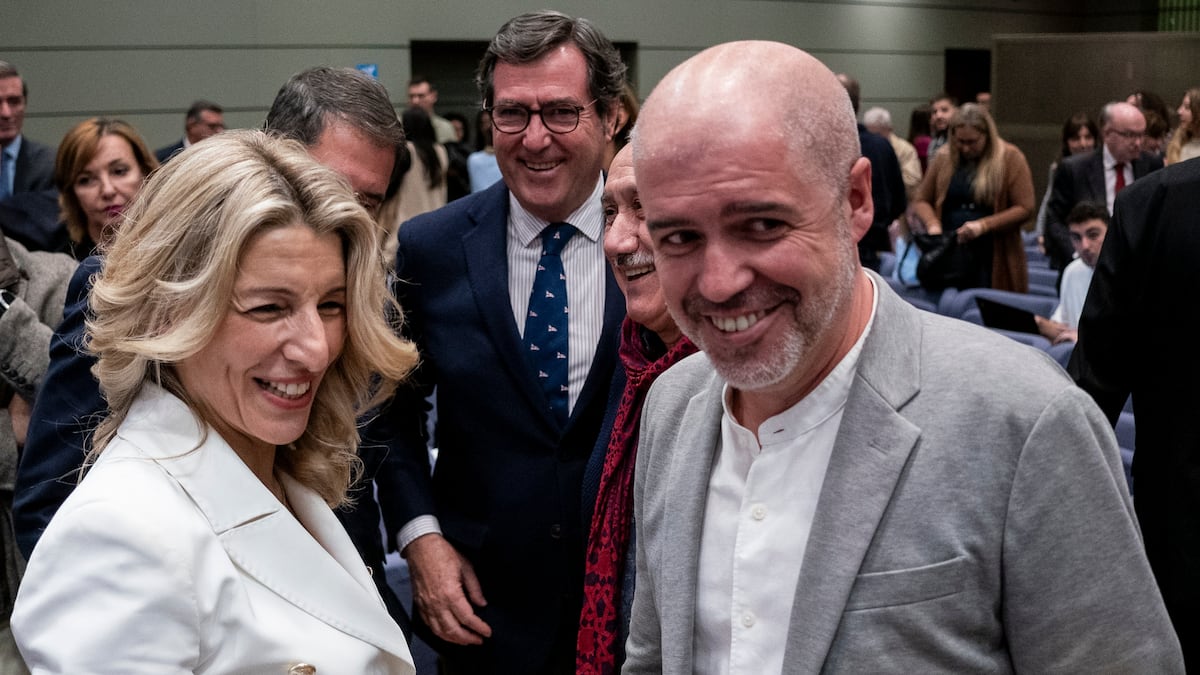This Tuesday, employers and unions were quick to criticize the Government for having approved “through the back door” and “without any negotiation” changes in the structure of collective bargaining, something that they consider, by constitutional mandate, typical of the collective autonomy of social agents. This regulatory modification – which grants the prevalence of regional collective agreements and, in some cases, also provincial ones over state sectoral ones – was agreed between the Executive and the PNV to achieve the support of Basque nationalists for the latest investiture of Pedro Sánchez. Given this, although the Government has not submitted this legal reorganization of collective bargaining to formal negotiation, it has included it in the Royal Decree-Law to reform the unemployment benefit approved this Tuesday by the Council of Ministers. However, the Ministry of Labor assures that this change in the articulation of the agreements had been known for a long time by employers and unions and had been debated in different forums.
However, the degree of negotiation has not been what the social agents expected. The CC OO union has been the first to publicly criticize the Government’s decision. After analyzing the changes, the center has indicated that “they represent an interference in the functions that article 7 of the Spanish Constitution attributes to union and business organizations.” Although the union is not closed to negotiating changes in the structure of collective agreements and remembers that they have been demanding the opening of social dialogue “to address the articulation of collective bargaining between companies, sectors and territories and the prevalence of agreements, which “it can clearly be improved,” they have criticized the fact that the Ministry of Labor “has opted for this regulation without involving social agents.”
UGT sources have not evaluated the substance of the measure but have firmly criticized the lack of negotiation on the part of the Government. Thus, they have considered that the prevalence of agreements “belongs to the essential nature of our activity (in the organization of labor relations) and should first go through social dialogue.” In fact, in this organization they also mention the specific mandate of the constitution so that a modification of the Workers’ Statute that affects the collective conventional structure “be treated, debated and addressed in advance at the tripartite table of social dialogue.” Without this, adds UGT, affecting the legislative capacity that the Constitution grants to the Congress of Deputies and the political parties that are in it.
Business organizations also maintain their strong criticism of this measure, which they have already expressed on previous occasions when the Government tried to give the green light to this measure. CEOE and Cepyme believe that the Executive “disdains” social dialogue due to the way in which it has approved these regulatory changes and remind the Government that the Constitution itself includes the mandate to consult social agents regarding modifications of this magnitude in collective bargaining. Regarding the substance of the matter, the employers assure that the prevalence of regional and provincial agreements “attacks” market unity and will mean a “deterioration of social cohesion and competitiveness” of the economy and companies in Spain.
Several attempts
This is not the first time that the Government has tried to carry out this change to the Workers’ Statute committed to the PNV. He already tried to incorporate the prevalence of regional agreements in one of the latest drafts of the labor reform, something that at the last minute disappeared from the final text and cost the Basque formation a negative vote. On a second occasion, the Executive introduced it in the first Royal Decree with which it tried to reform the unemployment benefit last December and which the PP and Podemos overturned in Congress.
And in recent months it had been the PNV that had added two amendments with this measure to the bill that develops the transposition of the European Directive on transparent and predictable working conditions, which will now supposedly have to be withdrawn after being included in the decree approved this Tuesday by the Council of Ministers. Despite all these attempts to carry out this partial reform of collective bargaining, the Government has never proposed a formal process of dialogue with the social partners, which has aroused the aforementioned discomfort among social agents.
This is not the only union criticism that the Government received this Tuesday. In CC OO they have also attacked in this same decree other issues that, according to the union, have not been conveniently negotiated in the social dialogue either. Specifically, they reject the way in which this regulatory text has modified the termination of employment contracts due to severe disability or permanent, total and absolute disability. And likewise, the union has shown its disagreement with the modification of the Law that regulates the Economic and Social Council (CES) which also includes this Royal Decree-Law.
